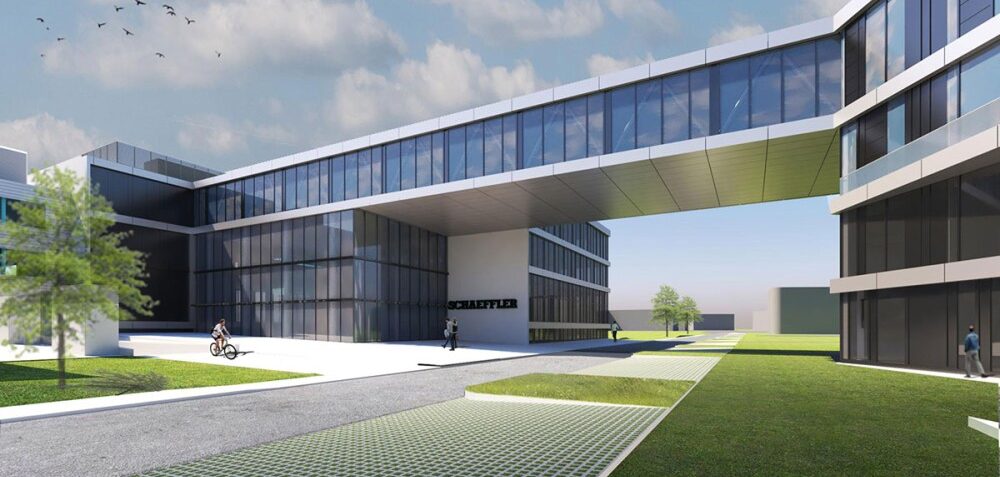Schaeffler is expanding its existing electromobility development and manufacturing campus in Bühl, Germany, by adding a new building complex. The facility will occupy an area of approximately 8,000m2 and will serve as a new center of excellence for electrified mobility at Schaeffler’s automotive technologies division headquarters.
“We are significantly scaling up our activities in electromobility and are acquiring major customer projects,” said Matthias Zink, CEO automotive technologies at Schaeffler. “We are creating new, state-of-the-art workspaces for our innovations in electromobility.”
The complex will consist of two buildings connected by a bridge. It will have a total floor area of 15,000m2, providing space for some 400 employees to work collaboratively on customer projects and develop new systems for electric powertrains. “Going forward, Schaeffler is eager to acquire more and more projects involving integrated mechanical, electronic and software systems. To optimally manage these complexities, we are building strong project teams and a future-oriented work environment,” added Dr Jochen Schröder, president of Schaeffler’s e-mobility business division.
The facility will feature workspaces for interdisciplinary teams, extensive collaboration and networking zones, as well as laboratory and workshop areas. There are also plans for a conference center. The new complex will complement Schaeffler’s three existing buildings at the Bussmatten site, where the company is already developing and manufacturing components and systems for electromobility.
Furthermore, in one of the existing buildings at the Bussmatten site – a production hall used for the manufacture of transmission components – Schaeffler is building an ultra-modern plant for electric motors known as the UltraELab, designed in accordance with the principles of the ‘ultra-efficient factory’ concept developed by the federal state of Baden-Württemberg in partnership with Schaeffler and others. “As well as raising the bar for efficiency and productivity, our aim with the UltraELab is to make a real contribution to greater sustainability,” said Schröder.
These objectives will be achieved primarily through the agile and flexible production of electric motors, the heart of every electric powertrain. Instead of using fixed production lines, the company will manufacture the motors using flexible digitalized technology modules that can be rearranged and rescaled as required. Thanks to standardized interfaces as well as state-of-the-art IT integration, the modules will be much simpler and quicker to set up and configure than conventional systems.
“Our goal is to achieve flexible and efficient production of innovative electric motors,” noted Schröder. A pilot plant in which experts can test the agile production facility already exists at the site. Paired with a digital twin, it will serve as a blueprint for the planned industrial-scale manufacturing facility. “By closely integrating electric motor development and production at a single location, we are leveraging key synergies for continuous product improvement,” Schröder concluded.


